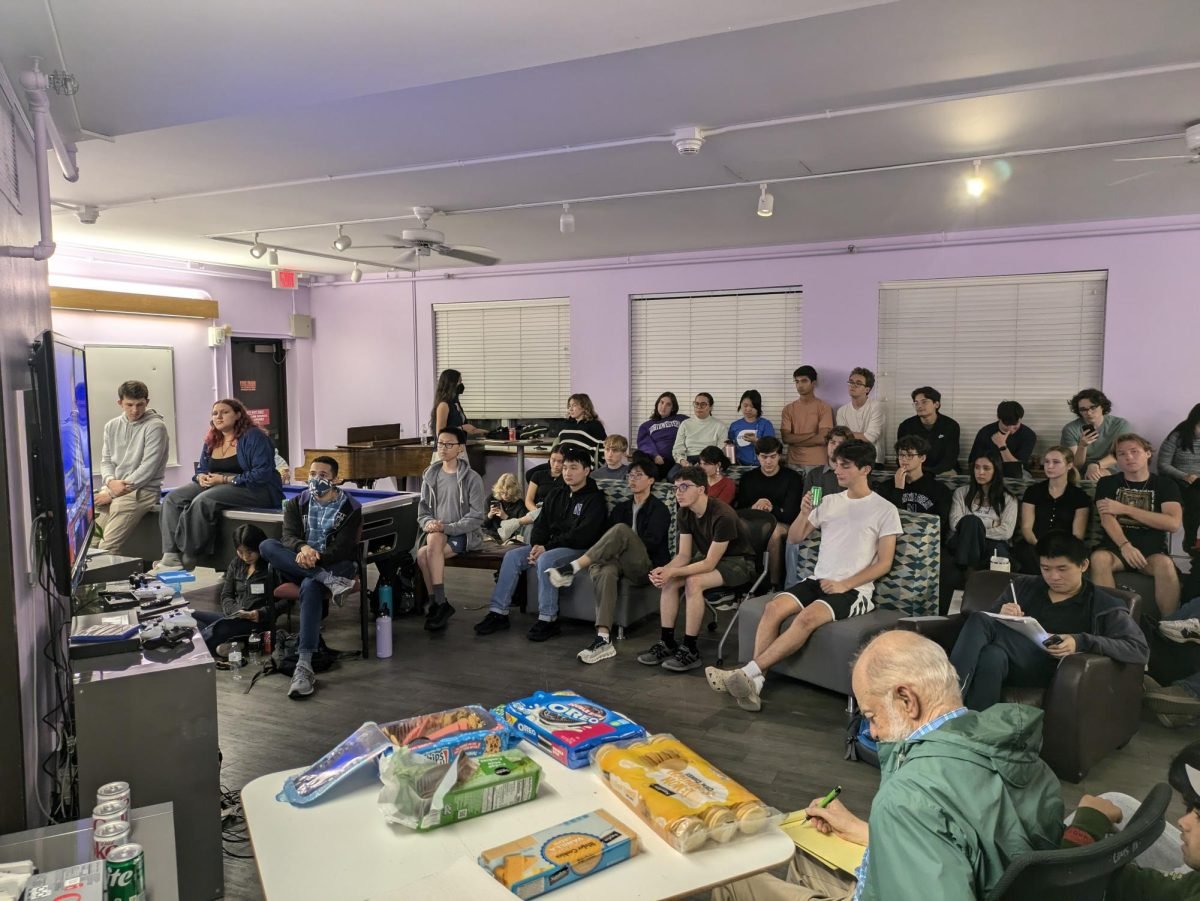The Communications Residential College hosted a jam-packed vice presidential debate watch party Tuesday night, drawing over 50 students and faculty members.
Communication Prof. David Zarefsky, who teaches classes on public discourse and previously published an entire book on the seven Lincoln-Douglas debates in 1858, was invited to set the context of the debate at the beginning of the event. He led a discussion with students after.
The former dean of what is now the School of Communication, Zarefsky highlighted the historical significance of vice presidential debates and emphasized the two responsibilities each candidate holds: to “extol the virtues” of the presidential candidate on their ticket and to serve as the “chief attack dog” of the presidential candidate on the other ticket.
“The vice presidential candidates often almost ignore each other,” Zarefsky said. “They don’t call upon each other to defend themselves directly but to defend themselves as representatives of candidates they’re running with.”
For over 90 minutes, U.S. Sen. J.D. Vance (R-Ohio), the Republican vice presidential candidate, and Minnesota Gov. Tim Walz, the Democratic vice presidential candidate, dueled over a slew of policy issues including immigration, abortion and gun control.
McCormick and Communication freshman Price Collier, who serves as the academic chair on CRC’s executive board, said he felt it was important to spread awareness about the Vance-Walz debate through the watch party.
“I think our younger generation today … we have a voice and often don’t use it,” Collier said. “And sometimes that’s just due to a lack of information and a lack of involvement.”
Other students agreed that the debate was more cordial and comprehensible than the two presidential debates held earlier this year.
Medill freshman Jasmine Jenkins labeled the Vance-Walz showdown more “diplomatic” and “objectively better” than their presidential counterparts. Nevertheless, she criticized both candidates for “beating around the bush” and avoiding answering questions “head-on.”
Communication freshman Elia Silbey felt aggrieved at how discussion about the Israel-Hamas conflict at the forum was limited to a singular question regarding a potential “preemptive strike” on Iran by Israel.
“I have been very angry for a very long time from both parties,” Silbey said. “It just frustrates me to see how much the United States puts its backing behind Israel, on both sides of the political aisle.”
Students also frequently mocked candidates, including when Walz said he was friends with “school shooters” and admitted to repeatedly misspeaking about his presence in Hong Kong during the Tiananmen Square massacre.
Communication sophomore and CRC Vice President Dillon Nashelsky called these moments “morbidly funny.”
Nashelsky added that he wishes points from both candidates could have been fact-checked more rigorously in real-time.
During the event’s closing, CRC Faculty Chair and Medill Prof. Roger Boye asked students who they felt won the debate. An overwhelming majority said it was a tie. However, Zarefsky pointed to Vance as the obvious answer in his view, arguing that the Republican nominee was a more polished speaker.
Collier said that while the debate’s amicable tone allowed viewers to focus on the issues discussed, he finds it difficult to gauge its overall impact.
“(Vice presidential candidates) aren’t the people who are going to be making the decisions … so it’s hard to say how important (debate) is,” Collier said.
Email: [email protected]
Related Stories:
— NU Votes registers 1,200 Northwestern students to vote






